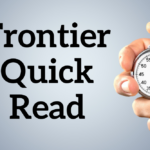
MES and ERP systems play crucial roles in the manufacturing industry. Each offers a variety of benefits that contribute to operational efficiency, cost reduction, quality improvement, and overall business success. Manufacturers rely on these sophisticated manufacturing planning and execution applications to navigate complex production processes, optimize resource allocation, and deliver high-quality products efficiently.
With MES ERP integration, manufacturers realize even more benefits from streamlined processes that enable them to adapt swiftly to market dynamics. The importance of integrated planning and execution software cannot be overstated. It empowers manufacturers to achieve operational excellence and maintain a competitive edge in today’s competitive market.
What is MES Software?
MES is a Manufacturing Execution System software used to track and document the transformation of raw materials into finished goods. It provides real-time data on production processes like:
- Machine monitoring
- Materials management
- Production tracking
- Quality standards compliance

MES ERP integration with Frontier gives your business a competitive advantage in the custom manufacturing industry.
MES helps optimize production efficiency, reduce errors, improve quality control, and provide insight into manufacturing operations.
What is an ERP System?
An ERP (Enterprise Resource Planning) system integrates and manages core business processes into a single, unified platform. These include:
- Finance
- Human resources
- Supply chain management
- Inventory management
- Product configurations
- Sales
- Customer relationship management
It enables companies to streamline operations, improve collaboration, enhance decision-making, and achieve greater visibility and control over their entire organization.
MES vs. ERP
It may be confusing to distinguish the difference between MES with ERP systems. However, they each have their unique functions which complement one another. The following are some examples:
Scope
- MES: primarily focuses on managing and optimizing manufacturing operations, including production scheduling, resource allocation, quality management, and shop floor control.
- ERP: covers a broader range of business functions in addition to manufacturing, such as finance, HR, procurement, sales, and distribution.
Functionality
- MES: provides real-time monitoring and control of the manufacturing process. It provides detailed tracking of materials, equipment status, work orders, and production metrics.
- ERP: encompasses various modules for managing different aspects of business operations, such as accounting, inventory, procurement, reporting, and HR management.
Primary Users
- MES: typically used by production managers, supervisors, quality control personnel, and shop floor operators who are directly involved in manufacturing activities.
- ERP: Used by employees across many different departments, including finance, HR, sales, procurement, and executive management, to support overall business processes and decision-making.
Integration
- MES: systems are often integrated with ERP systems to exchange data seamlessly between manufacturing operations and other business functions. This ensures alignment between production activities and overall business objectives.
- ERP: is a central repository of data that can be accessed by MES and other systems. ERP software provides a comprehensive view of company operations and facilitates data-driven decision-making.
Visibility
- MES: focuses on detailed, real-time monitoring and control of manufacturing processes at the shop floor level, providing detailed visibility into production activities.
- ERP: offers a broader, more comprehensive and strategic view of company operations. ERP facilitates long-term planning, resource allocation, and performance analytics across multiple departments and business functions.
8 Benefits of MES ERP Integration
MES ERP integration enables manufacturers to operate more efficiently, improve quality, and forecast more accurately for cost savings and business growth. The following are key benefits that aid in achieving those goals.
1. Real-Time Data Exchange
Integration allows for the exchange of real-time data between MES and ERP systems. This enables an accurate flow of information between production processes and other business functions, fostering better decision-making and responsiveness to changing conditions. Production data like work orders, inventory levels, and production schedules, flows seamlessly between the two systems. This eliminates manual data entry and reduces the risk of errors.

Frontier ERP with MES streamlines business operations for shorter lead times and faster order fulfillment.
2. Improved Visibility and Control
An integrated system combines detailed shop floor data from MES and broader organizational data from ERP. This provides manufacturing companies with a comprehensive view of operations like production processes, inventory levels, and use of resources. This enhanced visibility enables managers to monitor production performance, identify problem areas, and take proactive measures to optimize operations. Management can then make informed decisions quickly, optimize production schedules, and allocate resources more effectively to meet customer demands.
3. Enhanced Planning and Scheduling
Integration enables synchronized planning and scheduling across manufacturing and business processes. MES provides real-time production data to the ERP for demand forecasting, production planning, and inventory management. The ERP automates processes such as job scheduling, materials ordering, and quality control, streamlining operations and reducing cycle times. This improves overall efficiency and productivity, leading to cost savings and increased profits.
4. Optimized Resource Allocation
Integrated ERP MES systems enable better resource allocation by providing visibility into equipment use, labor availability, material requirements, and production capacity. This helps in optimizing resource usage, minimizing downtime, and maximizing productivity across the manufacturing process.
5. Accurate Costing and Reporting
Production costs are accurately captured and reflected in company financial reports as a result of MES ERP integration. This allows for more accurate product costing, cost analysis, and decision-making regarding pricing, resource allocation, and profits.
6. Streamlined Order Fulfillment
Integration streamlines order fulfillment processes by synchronizing order information, production schedules, and inventory levels between MES and ERP systems. This assures timely order processing, accurate inventory tracking, and on-time delivery to customers. This ultimately leads to increased customer satisfaction and loyalty, as customers receive their orders faster and with fewer defects.
7. Efficient Quality Management
Manufacturers can rely on seamless quality-related data exchange between systems to enable proactive quality management and compliance with regulatory requirements. By analyzing quality metrics, issues can be identified early, and corrective actions are taken to improve product quality.
8. Automated Data Capture and Reporting
Integration automates data collection and reporting processes by seamlessly transferring production data from the MES to the ERP system. This reduces manual data entry errors, eliminates duplicate efforts, and provides accurate and reliable data for performance analysis, compliance reporting, and decision-making.
Frontier ERP: The Best of Both Worlds
Frontier provides a comprehensive solution to manufacturing planning and execution with Advanced Manufacturing Execution (AME) MES. AME is a foundational component of the Frontier ERP system so no additional system integration is needed!
AME’s real-time delivery of production schedules and job details to the work center is completely paperless. Complete data visibility, production tracking, event notifications, and detailed reporting are just a few features of our MES software. With Advanced Manufacturing Execution MES software, you can take your production processes and shop floor management to the next level.
No matter your industry, we have your MES ERP system needs covered:
- Kitchen & Bath Cabinets
- Furniture and Textiles
- Window & Glass Manufacturing
- Window Treatments
- Custom Door Manufacturing
- Building Products
- Promotional & Ad Specialties
- Industrial Products
- Automotive and Aerospace
- Metal Fabricating
Conclusion
MES ERP integration stands as a cornerstone in manufacturing, offering streamlined processes, enhanced visibility, and agile responsiveness to the changing market. By optimizing resource allocation, improving efficiency, and ensuring high-quality products, system integration is essential for driving profitability and growth in today’s dynamic industry landscape.
Put your business on the path to manufacturing excellence today. Contact us to learn more about the benefits of Frontier ERP with MES.





